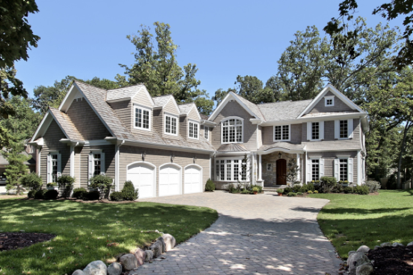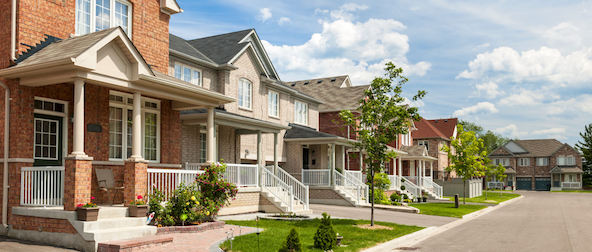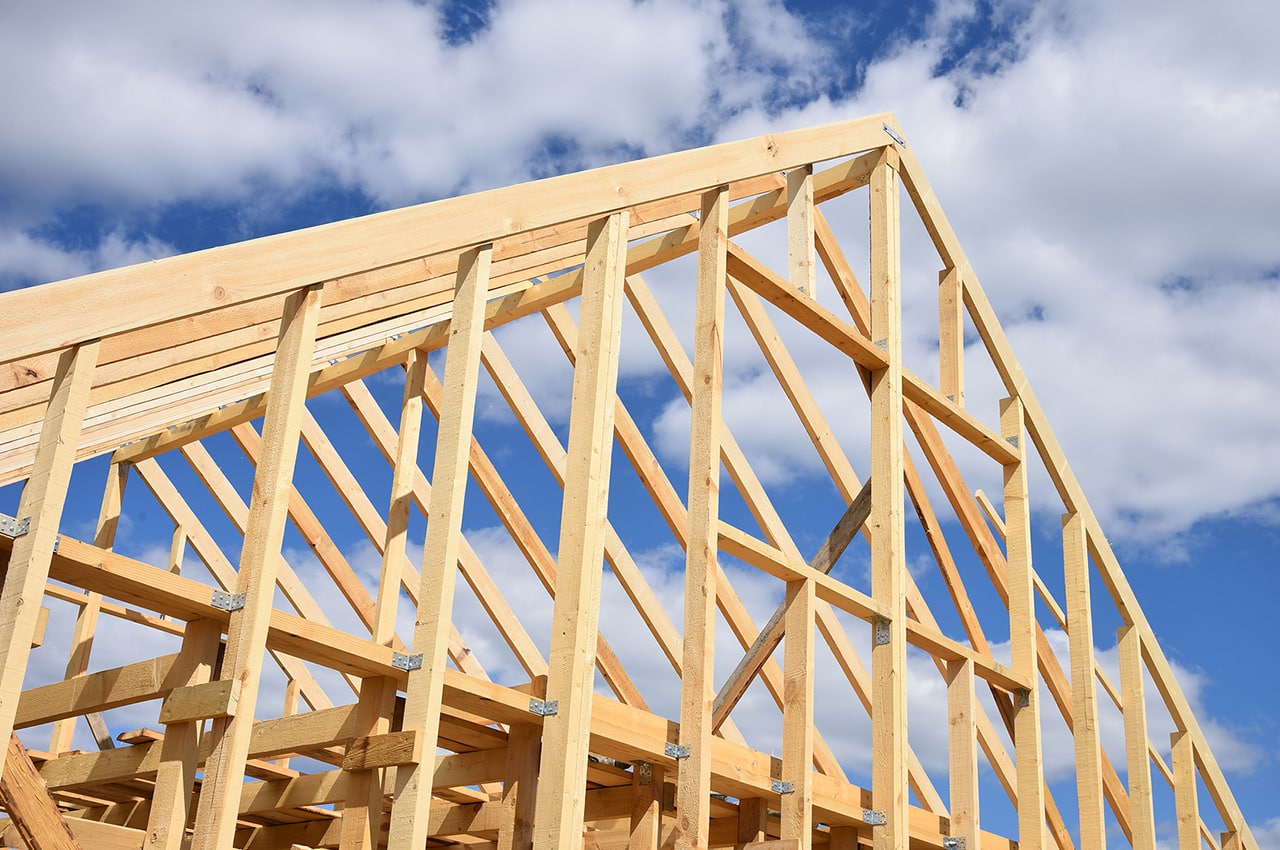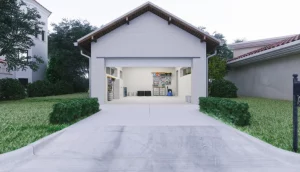Sixty per cent of Canadian housing markets anticipated to be balanced in 2023
RE/MAX Canada expects average residential prices to decrease by 3.3 per cent in 2023
- The biggest price declines across the country are expected in Ontario and Western Canada, where some markets may see average residential sale prices decrease by 10 to 15 per cent
- Price growth outlooks are anticipated in Atlantic Canada markets, with average residential sale prices expected to increase by eight per cent in Halifax and four per cent in St. John’s in 2023
- 60 per cent of regions in Canada are expected to be balanced markets in 2023, according to RE/MAX brokers and agents
- 73 per cent of Canadians still say that home ownership is the best long-term investment they can make
Toronto, ON and Kelowna, BC, November 29, 2022 – Amid rising interest rates, and a looming recession, RE/MAX Canada is anticipating a modest decline of 3.3 per cent in average residential sales prices across the country in 2023. The estimates are based on surveys of RE/MAX brokers and agents from coast to coast, as reflected in RE/MAX’s 2023 Canadian Housing Market Outlook Report.
In sharp contrast to 2022, most regions analyzed in the report will experience more balanced conditions in 2023 – a trend that’s already starting to materialize in many regions as a result of current economic conditions.
According to a Leger survey commissioned by RE/MAX as part of the report, Canadians view home ownership as the best long-term investment they can make (73 per cent). Yet, the majority (67 per cent), are feeling less optimistic in the short-term with 67 per cent less inclined to buy in the first half of 2023, and 62 per cent less inclined to sell in that time frame.
“It’s good see the majority of markets moving toward more balanced conditions, which is typically defined by 45 to 90 days on market. This is a much-needed adjustment from the unsustainable price increases and demand we saw early in 2022,” says Christopher Alexander, President, RE/MAX Canada. “Many Canadians have understandably expressed hesitancy about engaging in the real estate market early in 2023, in the wake of rising interest rates and broader economic uncertainties. However, despite this, a greater number of Canadians consider real estate to be a solid long-term investment compared to this time last year. As we head into the new year, it’s important that governments work collaboratively to support housing affordability and address the supply challenges that Canadians continue to face, in order to make home ownership feasible for those who want it.”
“We’re confident that as economic conditions improve and the market continues to even out into Q3/Q4 2023, a more-regular pace of activity will resume. It’s especially critical during challenging economic times, that staying informed and working with an experienced real estate professional can help Canadians clarify some of the unknowns, help them find a home within their means, and ultimately make the best decision possible,” says Elton Ash, Executive Vice President, RE/MAX Canada.
Regional Canadian Housing Market Insights
RE/MAX brokers and agents in Canada were asked to provide an analysis of their local market in 2022 and share their estimated outlook for 2023. Based on their insights, 60 per cent of housing markets in Canada are expected to be balanced markets in 2023, impacted by modest price declines and less activity.
With the exception of Halifax, NS, Ottawa, ON and the region of Montreal, QC, balanced market conditions are expected in Canada’s major city centres, including the Greater Toronto Area (GTA), ON, Mississauga, ON, Greater Vancouver Area (GVA), BC, Calgary, AB, Regina, SK and Winnipeg, MB, in what is being called a healthy development. Move-up and move-over buyers are driving activity in these regions with the exception of Ottawa, ON and Calgary, AB, where first-time buyers are expected to lead. Following a two-year frenzy fuelled by the pandemic, average residential sale prices are anticipated to decrease in Canada’s priciest markets – the GVA and GTA.




Greater Toronto Area (GTA), Ontario
The Greater Toronto Area (GTA) is currently a balanced market – a condition that is anticipated to continue into 2023. Move-up and move-over buyers have been driving demand in the region, in a trend that is expected to carry on in the next year. Meanwhile, single-detached homes remain the dominant housing type, followed by condo apartments. The average residential sale price has increased by 11 per cent from $1,086,155 in 2021 (January-December) to $1,203,916 (January-October) in 2022.
“We’re seeing three main trends that will continue into next year,” says Cameron Forbes, RE/MAX Realtron Realty broker. “Continued interest rate increases and associated price adjustments, rising unemployment due to an economic slowdown, and new opportunities to engage in the market for buyers and sellers because of improved affordability. For buyers, this includes having fewer competitors, reduced prices and an increase in choices in the market. Meanwhile, sellers will have a trade-up advantage, reduced competition of listings, a stronger ability to re-locate to the suburbs, and have all of the advantages that buyers do, too.” The most desirable neighbourhoods in the city are currently based on location and affordability, with access to transit being the largest factor.
Rising interest rates are expected to be a dominant theme in 2023, resulting in a slower market for both buyers and sellers in the GTA. These conditions are impacting first-time buyers in particular, with many choosing to pause their home-buying efforts, due to a lack of affordability. Meanwhile, new construction projects are being delayed as a result of the widening gap between market prices and construction costs, including the impact that higher interest rates have had on financing these projects. The luxury market in Toronto has slowed down and will likely continue to cool in 2023 due to economic pressures. The average residential sale price in the GTA may decrease by up to11.8 per cent in 2023.
“It’s important to also consider some key context for the GTA. The pandemic years between Spring 2020 and early 2022 were outliers in terms of pricing and demand and factoring out those years in assessing what lies ahead for the region is important as we slowly tilt back to a post-pandemic recovery. This moderating market is an opportunity for homebuyers to take the time to consider their needs, assess opportunities patiently and ultimately make a wise purchasing decision and investment in the long run” adds Alexander.
Greater Vancouver Area (GVA), British Columbia
Balanced market conditions in the GVA are anticipated to continue into at least the second quarter of 2023. Move-up and move-over buyers have led consumer demand in the region, with first-time buyers following close behind – a trend that’s likely to persist into the beginning of next year.
“A big priority for homebuyers will be weighing value against opportunity in the market, with upsizing being top of mind. On the flip-side first-time homebuyers will be able to take advantage of a cooling market and make offers with conditions,” said Tim Hill, RE/MAX All Points Realty agent. “Interestingly, it will be first-time home buyers that will facilitate move-up and move-over buyers to sell their first properties and upsize. I believe this will be a major factor and growing trend in the GVA real estate in 2023.”
Single-detached homes remain the dominant housing type in the area, with the “upsizing” trend expected to become increasingly popular among families in 2023. Desirable neighbourhoods in the city are currently based on location, with access to rapid transit playing a large part in purchasing decisions. A continued drop in condo pricing is expected into 2023, while the luxury market is anticipated to have a slow start to the year before balancing out in the latter half of 2023. The average residential sale price in the GVA is anticipated to decrease by five per cent in 2023.
Calgary, Alberta
Much like Vancouver, Calgary’s marked is balanced, but is expected to shift into seller’s territory in early 2023. First-time buyers are driving demand in the region, with move-up and move-over buyers trailing close behind – a trend that is expected to continue into 2023.
“First-time buyers dealing with higher interest rates have lowered their expectations and downsized their purchases, going from single-detached homes to duplexes or apartments,” said Richard Fleming, from RE/MAX Real Estate Mountain View. “We’re seeing first-time buyers that still want to get into real estate, they’re just adjusting what that looks like.”
The average residential sale price increased by 13 per cent from $585,025 in 2021 (January-December) to $658,277 in 2022 (January-October). Condos are currently the dominant housing type in the region, with single-detached homes expected to drive the majority of sales in 2023, as buyers seek additional living space. Inventory is anticipated to remain low in the first quarter of the year, before steadily increasing through the third quarter and finally sloping down again in the final quarter of 2023.
Home sales are steadily increasing and are expected to remain on the rise in 2023. The luxury market has decreased its pace but is likely to pick back up next year. The average residential sale price in Calgary is anticipated to increase by seven per cent in 2023.
Edmonton, Alberta
Similar to the majority of regions across the country, Edmonton is currently experiencing a balanced market, with demand expected to increase in the spring. Move-up and move-over buyers are driving demand in the region and are expected to continue doing so into 2023. The average residential sale price increased by three per cent from $387,614 in 2021 (January-December) to $401,025 in 2022 (January-October). Single-detached homes remain the dominant housing type.
“We’re seeing three main trends this year,” said John Carter of RE/MAX River City. “Migration from other provinces, increased demand for luxury residential real estate, and balanced market conditions.” New construction developments continue to be pressured by ongoing supply chain challenges and inflationary cost issues. Additionally, limitations on skilled labour are contributing to hurdles experienced by many builders.
However, Edmonton is expected to weather the recession well, as average incomes in the region are some of the highest in the country, according to Carter. Despite rising interest rates, the majority of buyers have not capped their mortgage capacity. Demand for downtown condos is expected to continue rising in 2023, with demand in the luxury segment becoming more robust in the year ahead. The average residential sale price in Edmonton is anticipated to increase by three per cent in 2023.
Regina, Saskatchewan
Regina is considered a balanced market and is anticipated to remain one in 2023. Move-up and move-over buyers have driven demand in the region and are expected to continue doing so into 2023. The average residential sale price in the region decreased by one per cent from $324,650 in 2021 (January-December) to $320,970 in 2022 (January-October). Single-detached homes remain the dominant housing type in the region.
“The market will remain balanced and steady through 2023 and we do not anticipate a major change in the average residential sale price or number of sales in 2023 as a result,” said Jeremy Cosette of RE/MAX Crown Real Estate. “We’ll see a lot of similarity to 2022 across the board and although housing supply will likely fluctuate throughout the year, overall, it’ll level out and remain unchanged in 2023.”
Rising interest rates will likely be a dominant theme in 2023, resulting in a slower market for both buyers and sellers. The average residential sale price in Regina is anticipated to remain the same in 2023.
Winnipeg, Manitoba
Winnipeg is currently sitting in a balanced market, but is expected to shift to a buyer’s market early in the year before returning to balance in late 2023. Move-up and move-over buyers continue to drive demand in the region, with single-detached homes remaining the dominant housing type in the region – trends that are both expected to intensify in 2023. The average residential sale price increased by 10 per cent from $386,491 in 2021 (January-December) to $423,680 in 2022 (January-October).
“In 2023 we will continue to see an interest in multifamily sales as well commercial, land assembly and land banking,” said RE/MAX Executives Realty broker Akash Bedi. “On the residential side, I think we will see a bit of a slowdown with residential rental unit sales.”
Rising interest rates are expected to continue placing pressure on affordability and pre-approval amounts in Winnipeg next year. Unlike the majority of regions, Winnipeg is experiencing an increase in joint family and multi-generational family ownership – which can be attributed to ongoing affordability challenges. The condo market is in line with the changes experienced in the overall market. The average residential sale price in Winnipeg is expected to decrease by 8.5 per cent in 2023.
Ottawa, Ontario
Ottawa is currently defined as a seller’s market and it is anticipated to remain one into the third quarter of 2023, where subsequently it is anticipated to become balanced. First-time homebuyers are driving demand in the region due to its relative affordability a trend that is expected to carry on next year. The average residential sale price increased by nine per cent from $601,039 in 2021 (January-December) to $656,761 in 2022 (January-October). Townhomes are currently the most in-demand housing-type due to the accessible entry-point they provide buyers.
“We’re seeing three main housing trends heading into 2023,” said Laura Keller of RE/MAX Affiliates Realty Ltd. “More multigenerational living, less upward movement as housing prices change and many first-time buyers who will look to engage and enter the market.” First-time buyers in Ottawa are particular about the finishes, style and location of their homes, with many not wanting to spend money on small renovations. As single-family dwellings have become unaffordable to rent, multi-residential properties and tiny or coach home conversions are expected to increase. Rising interest rates are anticipated to continue cooling the market in the next year. Supply remains an issue in Ottawa, with many new construction developments being halted due to increased development fees and material and labour shortages. The average residential sale price in Ottawa is anticipated to increase by four per cent in 2023.
Montreal Region, Quebec
The Montreal Region is currently a seller’s market, but certain types of properties and areas will be going towards a balanced market. These conditions are anticipated to continue into 2023. Currently, move-up and move-over buyers are driving demand in the region – a trend expected to carry over next year. The average residential sale price increased by 13 per cent year-over-year in Montreal from $490,000 in 2021 (January-December) to $556,000 in 2022 (January-October).
Single-detached homes are the most in-demand housing type in the Montreal Region. “We’ll see three main trends this year,” said Patricia Hamelin of RE/MAX du Cartier. “Slower movement in the market, an increase in the amount of move-up buyers and the market continuing to balance out in 2023.”
Now in the post-pandemic, housing demand is beginning to balance back to pre-pandemic levels. Rising interest rates are anticipated to continue impacting the housing market in 2023 – specifically by reducing its pace. Supply chain, labour shortages and rising costs of materials and labour have caused new construction developments to become delayed. The luxury market is expected to continue to cool in 2023, thus creating more advantageous opportunities for potential buyers. The average residential sale price in the Montreal Region is anticipated to decrease by five per cent in 2023.
Halifax, NS
Halifax is currently a seller’s market and it is anticipated to remain one in 2023. Move-up and move-over buyers are driving demand in the region and are expected to continue to do so next year. The city saw an 19 per cent increase in year-over-year residential sale prices from $457,741 in 2021 (January-December) to $542,663 in 2022 (January-October). Single-detached homes remain the most in-demand housing type among buyers. Interest rates rising and inter-provincial migration reducing post-pandemic, contributed to the number of sales in the region decreasing by 25 per cent year-over-year, from 6,588 in 2021 (January-December) to 4,912 in 2022 (January-October).
“Halifax is expected to see strong investor activity in 2023 as prices and returns are still attractive, especially compared to other major cities across the country. Amidst inflation, a looming recession and continued adjustments to interest rates, the year is expected to start slow, but pick up its pace in the second half of 2023,” says Ryan Hartlen, broker of RE/MAX Nova.
Supply is anticipated to remain tight in 2023 for Halifax, as buyer demand remains high and the city prepares to welcome a wave of new Canadians. Renting rooms and sharing expenses are ways first-time homebuyers are entering the market in Halifax. The luxury market has experienced additional activity and a recent rise in prices, but overall, this segment is expected to cool in 2023.
The average residential sale price in Halifax is anticipated to increase by eight per cent in 2023.
Additional findings from the 2023 Canadian Housing Market Outlook Report
- Western Canada
- In Nanaimo, BC, the Greater Vancouver Area, BC, Kelowna, BC and Winnipeg, MB average residential sale prices are expected to decline by five to 10 per cent in 2023.
- Victoria, BC, Calgary, AB, Edmonton, AB, and Saskatoon, SK are all expected to see average residential sale prices increase between two to seven per cent in 2023.
- The average residential sale price is not expected to fluctuate in Regina, SK in 2023.
- 67 per cent of regions in Western Canada are considered balanced markets, including Victoria, BC, GVA, BC, Calgary, AB, Edmonton, AB, Regina, SK and Winnipeg, MB.
- Nanaimo, BC and Kelowna, BC are both considered to be buyer’s markets, while Saskatoon, SK is categorized as a seller’s market for single-detached properties and a buyer’s market for condominiums.
- Ontario
- In London, Kitchener-Waterloo, Barrie, the GTA, Durham, and Lakelands West (Georgian Bay area) average residential sale prices are expected to decline by two to 15 per cent in 2023.
- Sudbury, Hamilton-Burlington, Oakville, Brampton, Ottawa, Mississauga, Muskoka, Niagara, Windsor, York Region, Haliburton, Peterborough and The Kawarthas, and Kingston are all expected to see average residential sale prices increase between two to eight per cent in 2023.
- 40 per cent of regions in Ontario Canada are considered balanced markets, including London, Kitchener-Waterloo, Oakville, Barrie, Toronto, Windsor, Lakelands West and Kingston.
- Hamilton-Burlington, Brampton, Mississauga and Niagara are all considered buyer’s markets, while Sudbury, Muskoka, Durham York Region, Haliburton, Ottawa and Peterborough and the Kawarthas favour sellers.
- Quebec
- In Quebec City, average residential sale prices are expected to decline by 10 per cent respectively.
- The region of Montreal is a seller’s market, while Quebec City is a balanced market.
- Atlantic Canada
- In Moncton, NB, Saint John, NB and Fredericton, NB, average residential sale prices are expected to decline between 3.5 and five per cent in 2023.
- Halifax, NS and St. John’s, NL are both expected to see average residential sale price increases in 2023, rising eight and four per cent respectively, while sale prices are anticipated to remain unchanged in Charlottetown, PEI.
- With the exception of St. John’s, NL (a balanced market), all regions in Atlantic Canada are considered to favour sellers.
Additional key insights from the Leger survey:
- Although rising interest rates have cooled/stabilized the real estate market, 45 per cent of Canadians are concerned that further increases will impact their ability to engage in the real estate market in 2023
- 54 per cent of Canadians believe that the two-year ban on foreign investors purchasing property which will come into effect on Jan. 1, will increase the availability of affordable housing for local homebuyers
- 15 per cent of Canadians are considering moving to another province in 2023 to find better housing affordability and liveability
- 54 per cent of Canadians feel confident that their financial situation will remain steady in 2023








